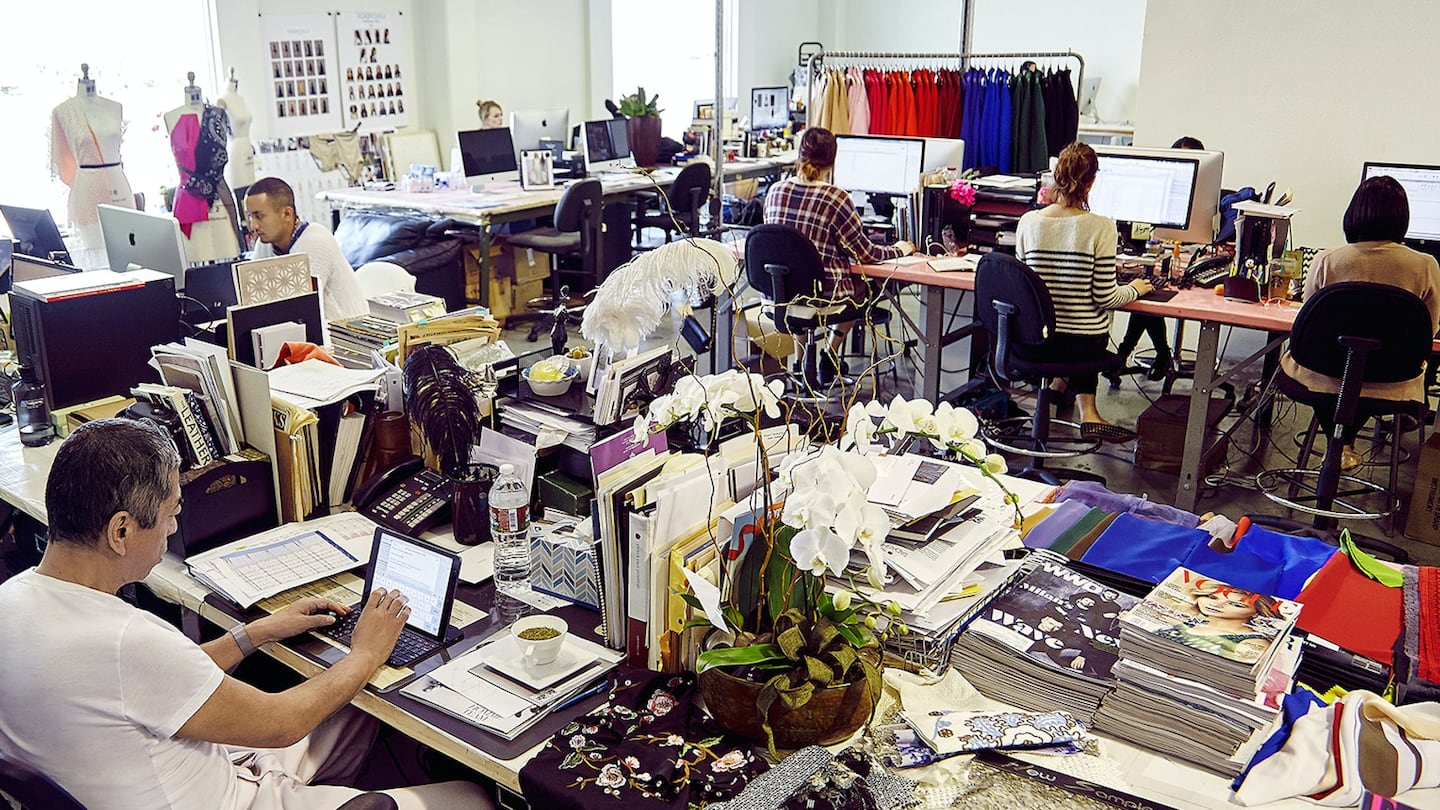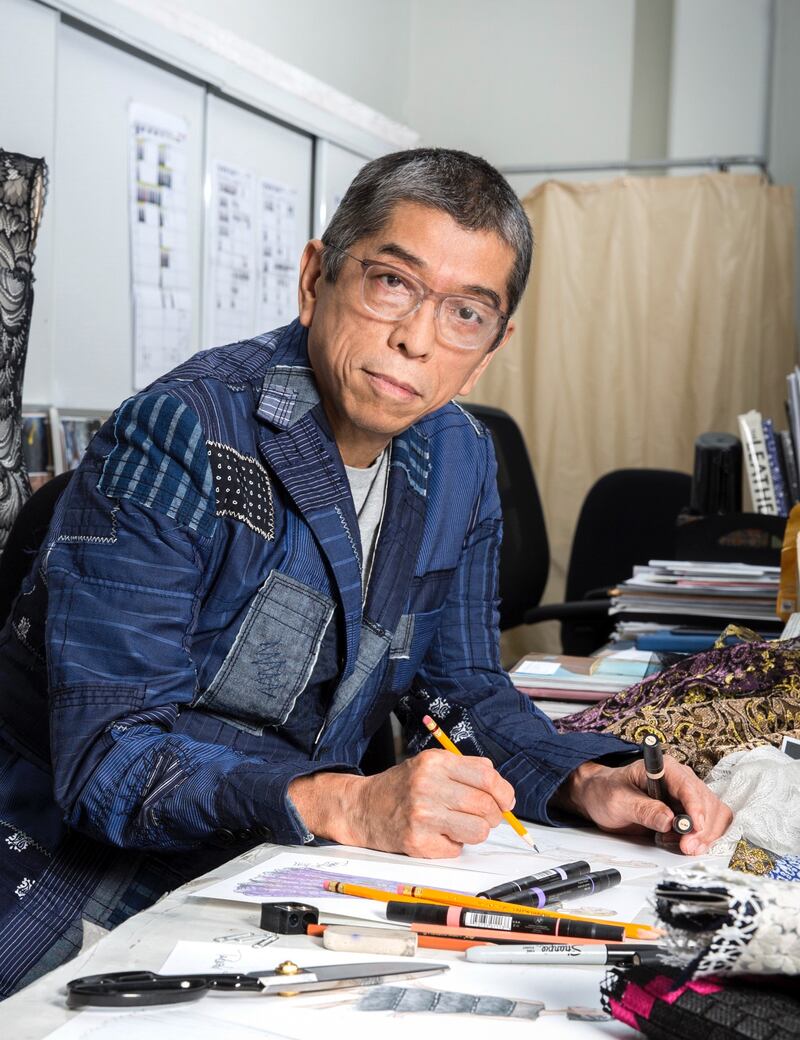
The Business of Fashion
Agenda-setting intelligence, analysis and advice for the global fashion community.

Agenda-setting intelligence, analysis and advice for the global fashion community.

LOS ANGELES, United States — Tadashi Shoji has handcrafted the culture of his eponymous company over a 35-year period, placing teamwork, transparency and personal development at its heart. Born and raised in Sendai, Japan, Tadashi began painting and drawing from a young age and eventually moved to Tokyo, where he studied fine art. However, it was not until Tadashi moved to Los Angeles in the 1970s that he became passionate about fashion design. Soon after earning a design degree, while working at a prominent clothing manufacturer the designer noticed that women had few choices in the contemporary market when it came to special occasion dresses. In 1982, Tadashi launched his eponymous collection of romantic eveningwear.

Tadashi Shohji | Source: Courtesy
Over the next 25 years, Tadashi built a contemporary business that is stocked in over 750 department stores worldwide, including: Neiman Marcus, Nordstrom, Saks Fifth Avenue, Bloomingdales, Harvey Nichols and many further specialty stores. The company operates offices in Los Angeles and Shanghai, as well as showrooms in New York and Tokyo. In 2007, Tadashi debuted his higher-end runway collection at New York Fashion Week. In June 2012, he was one of 26 members inducted into the Council of Fashion Designers of America (CFDA).
BoF: How would you define the DNA of Tadashi Shoji?
ADVERTISEMENT
The foundation of our company culture is collaboration and trust: trust between the brand and the consumer and collaboration between employees. Tadashi Shoji is not a corporate company, there is no strict hierarchy where everyone has to report to this person, and then that person reports to the next level up, who then reports to me. In our two main offices we work in open plan spaces, with my desk at the centre. Everybody can approach me and if they see that I am available we can talk. The reason for this is that if we divide by department, departments don’t communicate. Communication is the most important thing.
BoF: What events in your personal entrepreneurship story led to you founding your own brand?
I started my business with a partner who I worked with for almost 10 years. I was doing all parts of design and the production side and he focused on the business side. However, it didn’t work out as I envisioned so I decided to end the partnership which was the biggest risk I have ever taken. Ninety five percent of my employees followed me. Their loyalty to and trust in me touched my heart (some people are still working for me 25 years later), so I taught myself the business side. I didn’t go to a business school, even the fashion school I attended was a junior college. I didn’t go to Parsons or that kind of place, but I did it, and managed to teach myself everything.
As a result, I believe in personal growth and the opportunity for employees to apply their skill sets across the company. If you have an idea for a project, regardless of what team you work on, we should listen to those ideas and grow from them. I believe in taking calculated risks and giving chances to those who show a bias for action. No risk, no reward.
BoF: As the company enters a period of international expansion, how will you maintain and grow your culture?
We want to enlist the right talent to grow the company internationally. We are very mindful that every market is different and it is imperative that we plan and develop targeted activities to cater and grow our international business. In this world of fashion, we have to be inventive to compete — if not, we’re copying people and the company would never survive we have to look forward and come up with new ideas. I tell my employees to “Do what you believe”, and if it doesn’t work we can immediately change it. Mistakes cost the company, but it’s a valuable failure. I think most of the time it works for us, but sometimes it doesn’t work and we have to change it. But, if we were afraid of mistakes — my employees could not do what they have to do. They have to believe in themselves and they have to take charge of what they’re doing. That’s the most important challenge to not be afraid to make mistakes. Let’s talk about it and let’s do it.
BoF: What are the traits Tadashi Shoji is looking for in candidates?
As I mentioned, our company is not corporate; it’s not strictly divided between departments, so being open-minded is very important. During an interview, I always ask, “What kind of food do you like?” Most people, in my experience, say they only like a very limited type of food. Potatoes and meat, that’s it, they cannot eat fish or other dishes — it sounds funny, but time and time again it has turned out that those people don’t work well at the company. You need to be open-minded; our employees come from different countries, work in different global cultures and have to work cohesively together. So, if our company culture is not open-minded — I don’t think it can work. Aside from that, we look for people with a strong sense of business judgment. People that are collaborative but capable of working independently, those that take personal ownership of a task, while being a team player — flexible problem solvers. That, invariably, requires a hands-on attitude and a willingness to roll up one’s sleeves.
ADVERTISEMENT
BoF: What are the company’s specific talent priorities at the moment?
E-commerce is an important growth area now, so we are definitely seeking art directors, digital content creators, multi-media editorial content creators and e-commerce specific roles. We are also seeking to grow our design team. Additionally, we’re planning on entering into more franchise agreements, to open more stores. Today, around 40 percent of business is international and 60 percent is domestic to the US. We’re especially looking to expand in South East Asia, across Vietnam, Thailand and Myanmar, and are very interested in talking to people that could be involved in that expansion.
Discover the most exciting career opportunities now available on BoF Careers — including jobs from Tapestry, Alexander McQueen and Toteme.
A US regulator has banned most uses of the clauses, which started as a way for fashion companies to prevent senior executives from walking off with trade secrets, but have become a standard retention tool.
Check out this week’s new partners and openings on BoF Careers, the global marketplace for fashion talent.
BoF Careers provides essential sector insights for fashion designers this month, to help you decode fashion’s creative and commercial landscape.